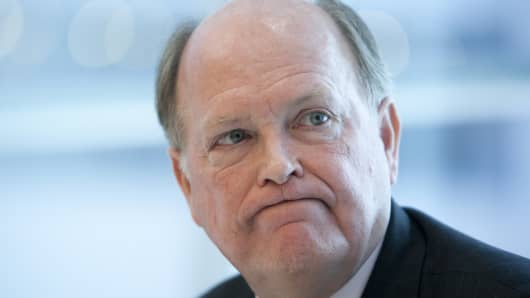Additional stimulus from the Federal Reserve won't get businesses to invest and consumers to spend, Charles Plosser, President of the Philadelphia Federal Reserve, told CNBC’s "Closing Bell."
“My current assessment of the both the economy and effectiveness of QE (learn more) is that I don’t think it really meets the cost-benefit analysis,” Plosser said in an interview ahead of Federal Reserve (learn more) Chairman Ben Bernanke’s speech in Jackson Hole tomorrow. (Read More: Will Bernanke Say Anything?)
Plosser noted consumers have faced a massive loss of wealth following the bursting of the housing bubble and their natural inclination has been to save.
“What [the Fed's] policy is doing is trying to push down rates so consumers don’t save,” Plosser said. Monetary policy is trying to move spending from the future to the present, but Plosser noted consumers are still trying to save and must save even more with interest rates so low.
Businesses, meanwhile, face a good deal of uncertainty — ranging from the election to the fiscal cliff — that has kept them from investing, Plosser added.
“Both those headwinds are not something monetary policy can fix,” Plosser said.
(Read More: More Fed Easing 'A Close Call': Fed's Lockhart.)
Then there are the risks. “Monetary policy is at an extraordinary level of accommodation never before seen in history and there are unintended consequences we are likely to face,” Plosser said.
For one, he warned that when the $1.5 trillion in excess reserves begin to flow out into the economy it could spark inflation.
“If we’re going to balance costs and benefits we have to take into account the risks we’re taking,” Plosser said.



